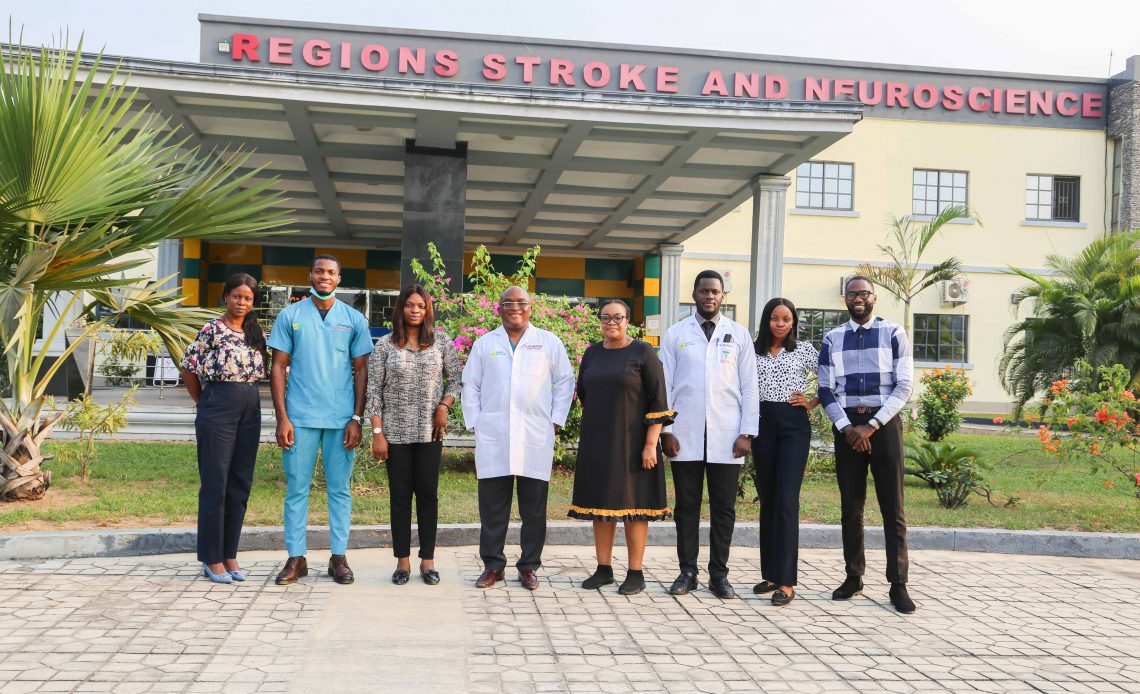There is a reverse side to Nigeria’s medical brain drain. Healthcare professionals from the diaspora are showing their readiness to come back home and establish medical facilities. Dr Chinonso Egemba and Regions Healthcare are excellent examples of what it is like to take advantage of this ‘brain gain’ to support the growth of Nigeria’s health system.
In January 2023, Dr Chinonso Egemba, popularly known as Aproko Doctor on social media shared his battle with a brain tumour. It quickly became one of the most talked about stories in January 2023, not only because of who he is, but also because he revealed that the entire process — from diagnosis to surgery to post surgery — was successfully carried out in Nigeria.
The online discussion sparked by his revelation highlighted the deep-seated distrust in Nigeria’s healthcare system as many of the people who contributed to the conversation debated entrusting something as delicate and life changing as brain surgery to Nigeria’s ‘complex’ healthcare system. Egemba said people had urged him to have the surgery done abroad, but he trusted Dr Tayo Ojo, a Nigerian neurosurgeon practicing in Nigeria, to perform the procedure. His confidence paid off. The surgery went well and he is now recovering well.
Is there no end in sight?
The root of the distrust in the health system is buried deep in decades of poor investment in the health system in Nigeria, which has been exacerbated by current health worker migration to other countries in search of better job opportunities. Poor health outcomes and an increasing rate of health worker migration continues to pose challenges to Nigeria’s health sector.
Though the rate of migration appears daunting and clearly requires strong political leadership and will, there is a glimmer of hope as some health workers have returned to Nigeria after years of practicing abroad, choosing to bring home their much-needed expertise and skills.
Not an easy move
Dr Benjamin Anyanwu, the Executive Medical Director of Regions Stroke and Neuroscience Hospital in Mgbirichi, Imo State, who specialises in neurological and neurosurgical critical care and vascular neurology, said returning to work in Nigeria after decades of practice in the United States (US) was both simple and complex. “It is difficult to change the healthcare sector in a country with limited resources,” he added. However, his commitment to saving lives and passing on skills kept him going.
When Dr Anyanwu first started considering the idea of returning to Nigeria, people thought it was a crazy idea. However, when he eventually began the hospital project in 2015, partnerships, support and goodwill enabled him to get started.
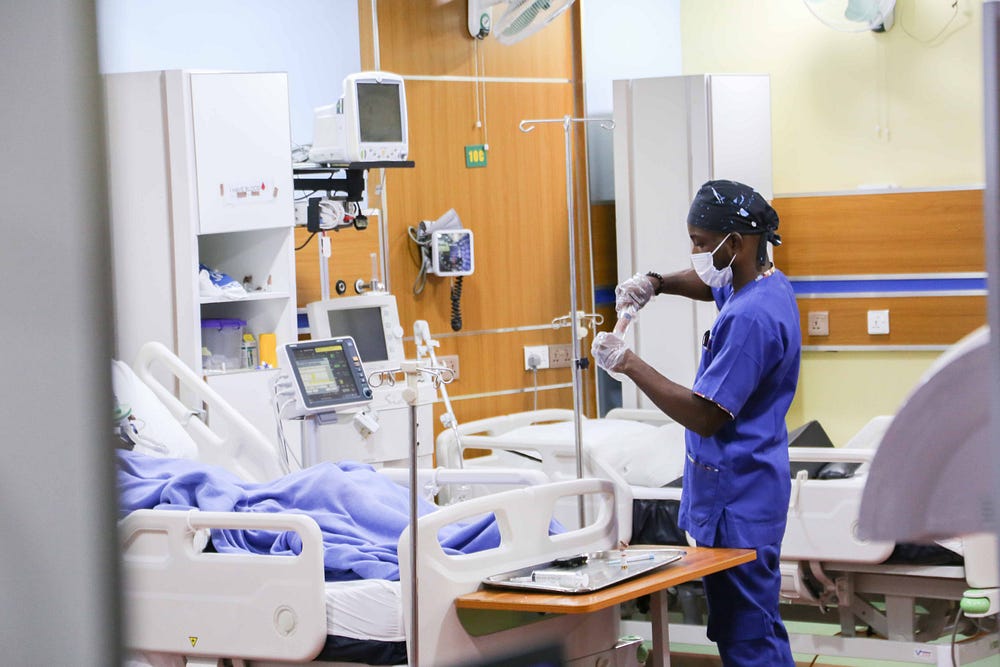
Among other things, data informed the location of the hospital in Mgbirichi, which is about 30 kilometres from Owerri, the state capital, rather than the more cosmopolitan Lagos or Abuja. Dr Anyanwu said his team considered the approximately 60 million Nigerians living in Southern Nigeria who also required their services. “We felt that by bringing this down here, we would be able to, at least, make healthcare more accessible to people who live here,” he noted. Patients are now travelling from other areas to access their services.
Start from where you are
“Seeing some Nigerians who had similar dreams was one of the things that kept the vision alive,” Dr Anyanwu said. However, he added that over 90% of those who inspired him with similar plans of bringing their skills home never followed through. A common trend he found was that most of them had plans to build massive structures that would cost millions of dollars. Given Nigeria’s complex healthcare system with 80% of healthcare expenditure being out-of-pocket payment and the economic situation, that could be daunting. So, he decided to do things differently, starting with a single specialty hospital, and because he already had extensive experience gained while practicing in the US, he focused on neurological care.
In keeping with the adage that, “you can’t teach an old dog new tricks,” Dr Anyawu hired mostly young people to staff the hospital and invited colleagues from the US to retrain them from scratch. This, he believes, has been a key success factor.
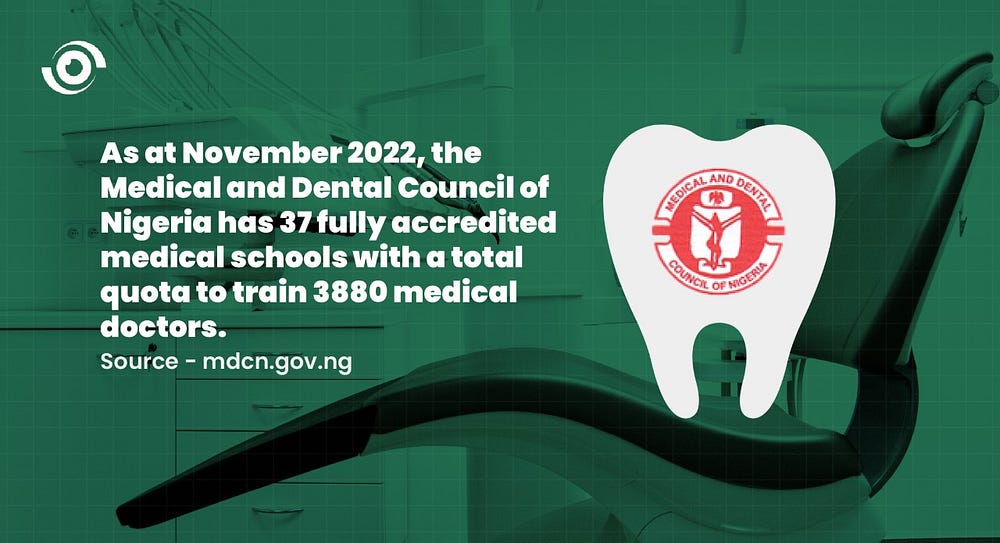
They have now transitioned to Regions Healthcare, a multi-specialty facility that provides nephrology, renal replacement therapies, dialysis, diagnostic, cardiology, and various intensive care specialisations, as a result of some partnerships he formed. According to Ijeoma Anyanwu, Administrator of Regions Healthcare, the facility began without a theatre and now has three in operation.
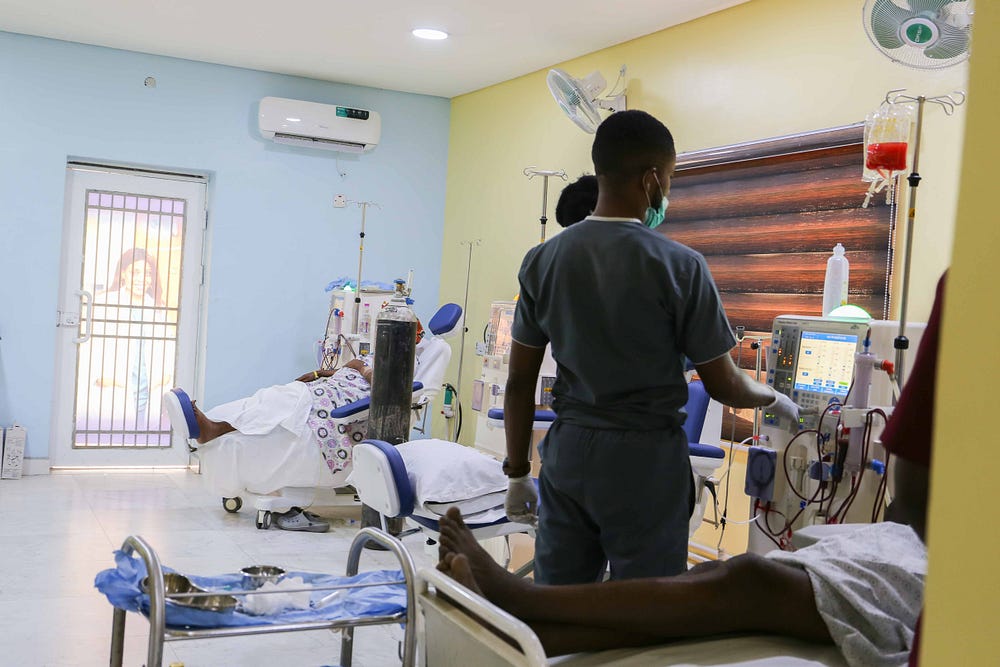
The many phases of growth
Despite having undergone heart surgery in Kaduna State and spending 21 days in the intensive care unit (ICU) and another two months in the ward, Philip Audu Ndahi, battled with constrictive pericarditis — a heart disease — for more than five years. While trying to raise funds to travel abroad for better treatment, his consultant in Gombe State, Dr Ijoba learned about Regions Healthcare from a colleague during a conference in Abuja. Following his referral, Ndahi went for a surgical intervention called a pericardiectomy, spent two days in the ICU and began rehabilitation sessions at the rehab unit on day three.
“It was a quick recovery compared to when I was operated elsewhere. All the symptoms I was having before I came are gone.” Philip Ndah
For Professor of Civil Engineering, Onuegbu Ugwu, his UK-based sister learned about Regions Healthcare from her contacts after he was diagnosed with a stroke and they commenced the search for “the best stroke hospital in Nigeria,” he said. “I didn’t know about the hospital but thank God I came because immediately I arrived, they did a power analysis that was juxtaposed with my brain CT scan and discovered the problem wasn’t stroke,” Ugwu said. The neurosurgeon conducted an anterior cervical discectomy and fusion surgery after which he made full recovery.
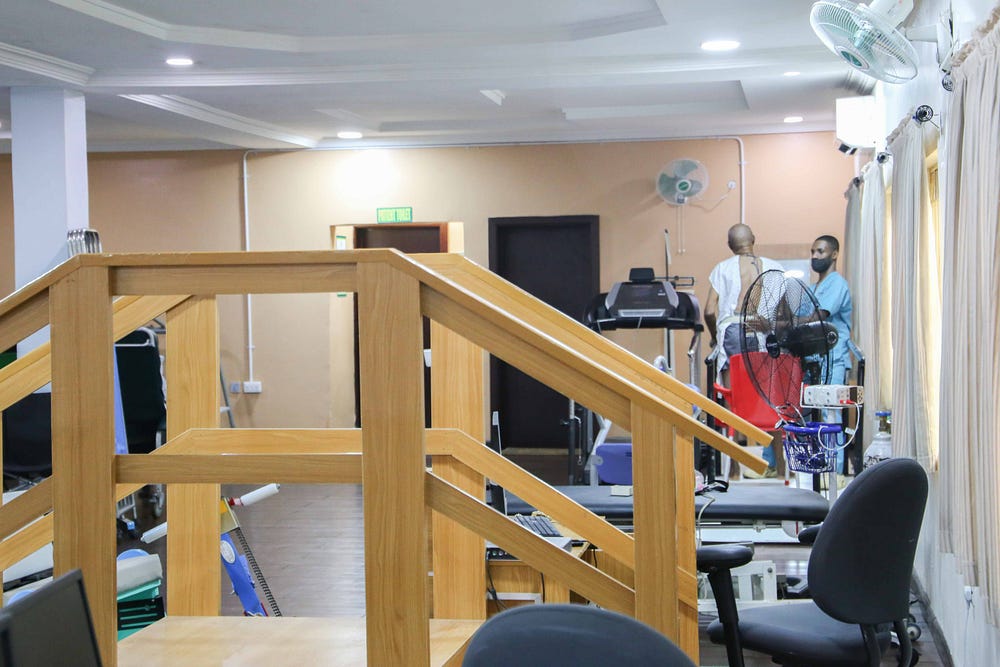
Beyond the patients, the impact of Regions Healthcare also extends to the staff and the community. For a facility that deals with only specialised cases, seeing over 600 patients in a year is a significant improvement from where they started, Anyanwu stated. Notably, they have transitioned from transporting their patients to Port Harcourt to support medical procedures such as dialysis, to running in-house dialysis.
After graduation, young healthcare workers come to the facility to build their skills in critical care, plasmapheresis, cardiovascular physiology, and continuous renal replacement therapy among others, said Dr Godwin Egbon, the General Manager of the Critical Care and Dialysis Unit, a pioneer staff member at the facility.
Making progress despite challenges
According to Dr Anyawu, while working with young people is a key to the success of the facility, it is also a challenge. “The problem is that all of them are running away with this craziness around the so-called “japa” syndrome”. Though he is not against them leaving, the rate at which they are leaving is the challenge, he added. “Imagine graduating 1000 healthcare professionals and 800 leave at the same time. That’s too much.”
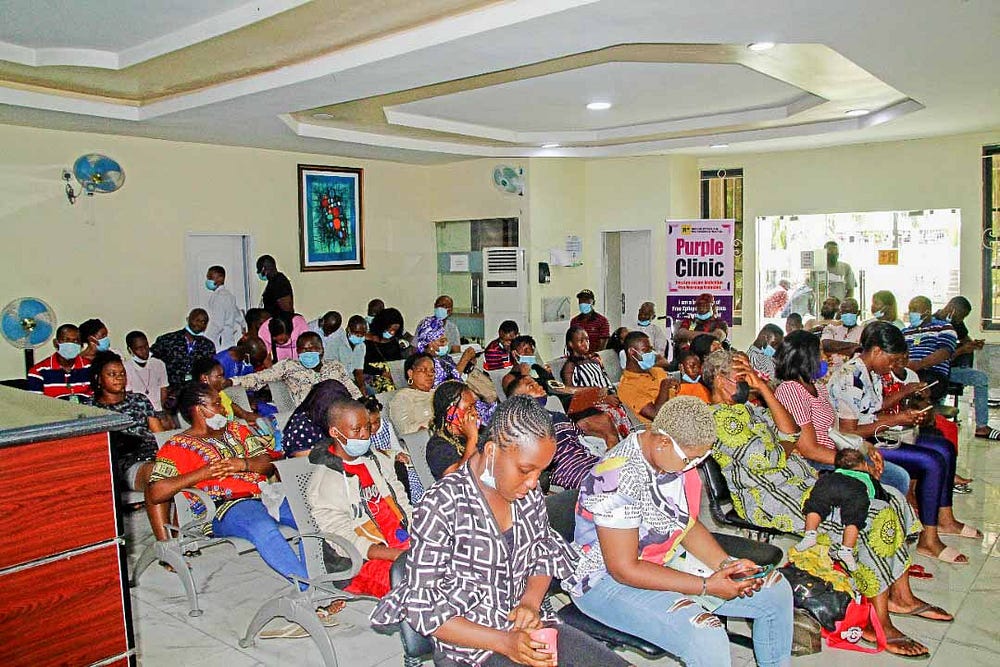
Although there are benefits to operating in Imo State, one disadvantage is that the facility’s services are not competitively priced with those of specialist hospitals in Lagos or Abuja. Patients and their families are often surprised by the high cost of services, believing that prices should reflect the lower cost of living in Owerri.
However, because they must charge reasonable fees for their services in order to maintain the quality of care, a non-profit arm supports indigent patients in receiving free or subsidised care. Purple Clinic, a free consulting clinic which runs every Thursday, provides free consultations and medications to patients suffering from neurological disorders such as epilepsy and seizures.. The ROW Foundation and the West Atlantic Brain and Stroke Foundation provide grant support for the clinic.
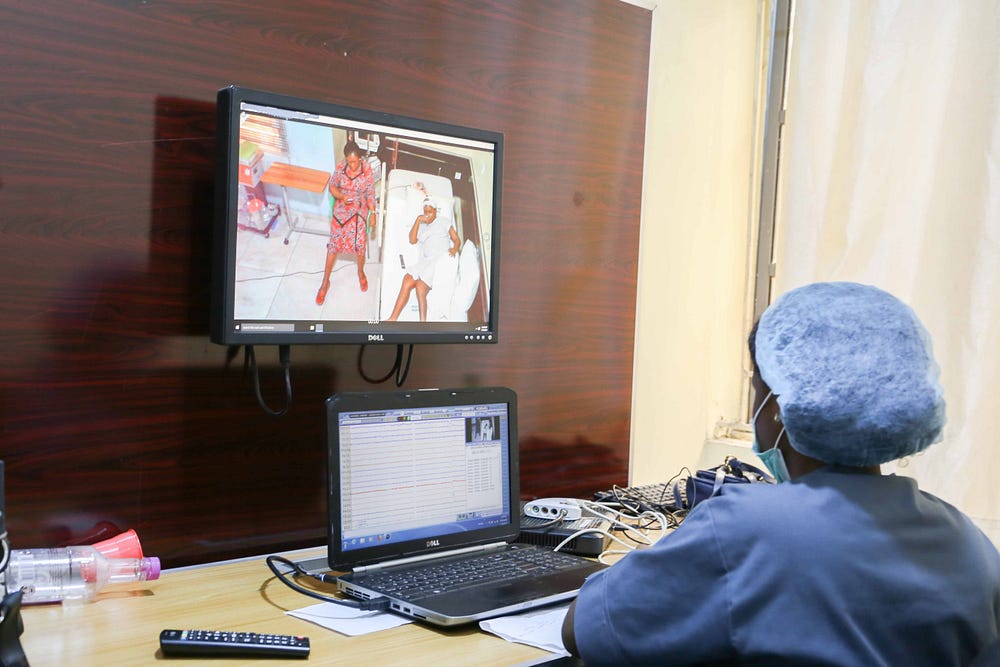
In a recently released Nigeria Health Sector Market study report, produced by the Netherlands Consulate and PharmAccess Foundation, they identified opportunities for local capture of the growing investments in medical tourism. They recommended more partnerships and investments to tap into these opportunities.
Nigeria’s Minister of Health recently acknowledged the importance of bridging gaps and collaborating with Nigerian health experts in the diaspora. The government must act by removing the barriers that health professionals face when establishing a practice in the country. This will create an environment that encourages more partnerships and supports the growth of healthcare ‘brain gain’ in Nigeria.
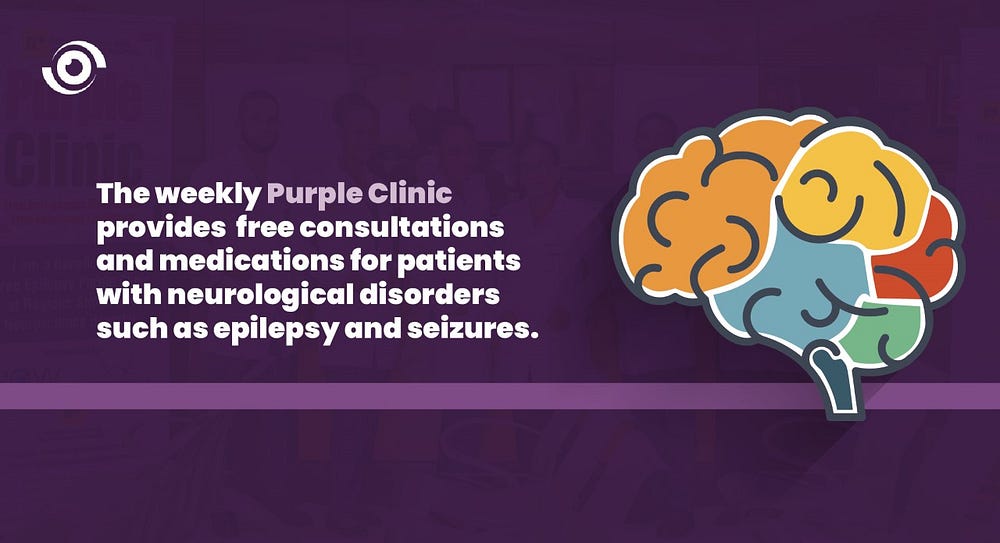
Egemba and Regions have both demonstrated that Nigeria can provide world-class specialised healthcare services that are on par with what patients seek outside the country. Moreover, healthcare professionals from the diaspora are showing their readiness to come back home and establish medical facilities. Their return is not just an aspiration, but a reality. Therefore, Nigeria can save the huge expense it incurs on medical tourism, which hit $1.9 billion in 2019.


